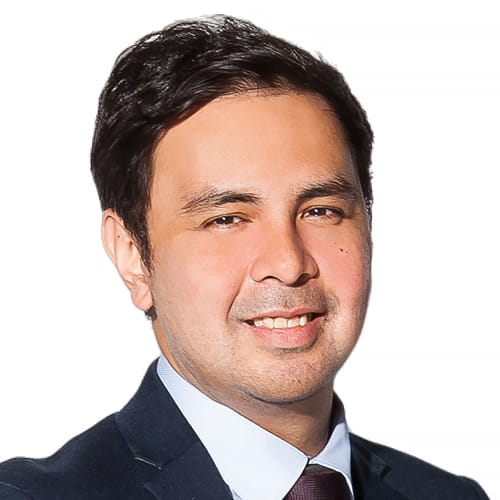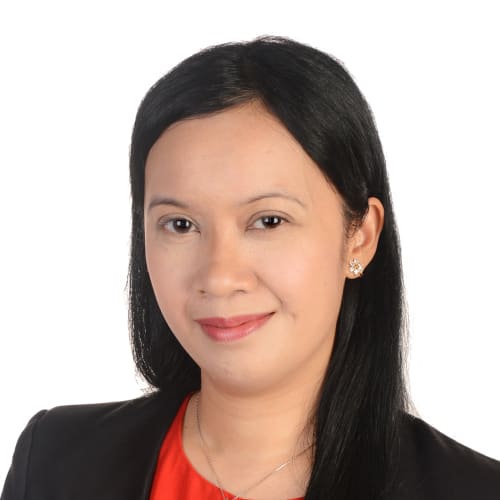Political Islam: Preachers in Malaysia, Indonesia with millions-strong online flocks unafraid of rocking the boat
In the second of a five-part series on political Islam in Southeast Asia, CNA looks at how religious leaders popular among youths in Malaysia and Indonesia have at times waded into politics with their teachings and galvanised followers.
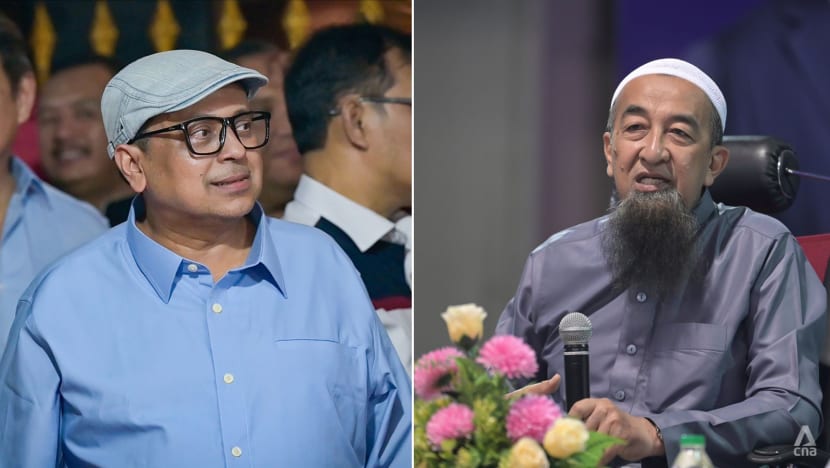
Ustaz Haikal Hassan (left) of Indonesia and Ustaz Azhar Idrus of Malaysia. (Photos: CNA/Danang Wisanggeni, Zamzahuri Abas)

This audio is generated by an AI tool.
KUALA TERENGGANU/JAKARTA: With his casual style of lectures delivered in a thick Terengganu accent, Malaysian Islamic religious leader Ustaz Azhar Idrus has grown in popularity among Muslims in Southeast Asia.
He has more than 1.7 million followers on his social media pages including Facebook, Instagram and TikTok. He is knowledgeable in Islamic jurisprudence and gives advice on different religious topics including finance, morals and even spousal relationships.
Yet, there are some quarters who accuse Ustaz Azhar of being political with his messaging at times, and feel the mixing of politics and religion should not be permitted, especially since a large portion of his audience are impressionable youths.
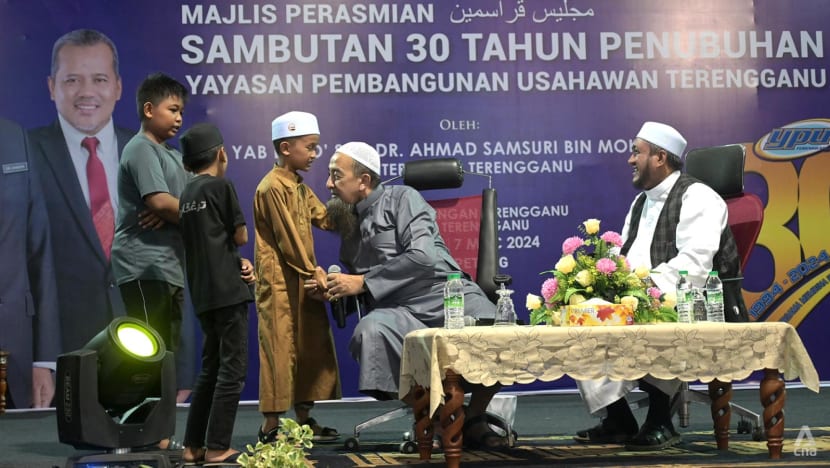
Over in Indonesia, Jakarta-based preacher Haikal Hassan - unlike Ustaz Azhar - has been far more overt with his political views.
Ustaz Haikal, who has been using social media to preach Islamic values for the past 15 years, boasts over two million followers on Instagram. A previous account with about 6.7 million followers was compromised.
His posts on the social media application of late have been less about religious teachings and more on the political developments in Southeast Asia’s largest economy. Indonesia held its latest election on Feb 14 and it would not be difficult to guess who Ustaz Haikal’s preferred presidential candidate was.
It was Defence Minister Prabowo Subianto, who has since been declared the winner of the election by the country’s General Elections Commission (KPU).
The proliferation of such preachers who are savvy with social media and unafraid to rock the political boat appears to be on the rise, in response to a growing expectation of them to be more vocal on certain issues.
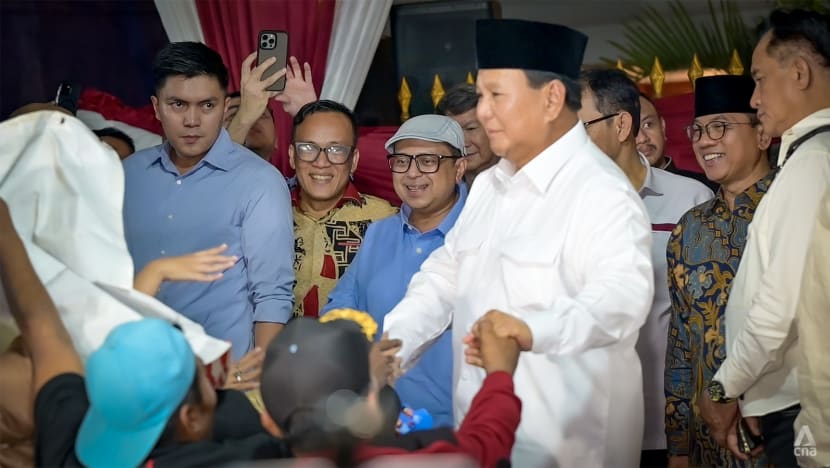
According to a study released by American think-tank Pew Research Centre in 2023, around six in 10 respondents polled in Malaysia and Indonesia say religious leaders should talk publicly about the political parties or politicians they support, with about half even saying they should enter politics.
Also, more than half of the respondents in Malaysia and Indonesia believe religious leaders should take part in political protests, slightly more than the 50 per cent of those polled in Cambodia and eclipsing the 18 to 29 per cent of respondents in Singapore, Sri Lanka and Thailand.
The study surveyed 13,122 adult respondents across six Asian countries between June and September 2022.
Associate Professor Dr Mohd Yusri Ibrahim, chief researcher for think-tank group Ilham Centre, told CNA that many Muslim youths in the region may be keen for the preachers they follow to also speak about politics or participate directly in politics because it is an area in which they lack knowledge.
"Youths, in relative terms, have a poor level of political literacy and their understanding of religion also has not much depth. At the same time, their spirit and determination towards Islam is strong and some are fanatic in following certain popular preachers who are able to explain concepts well, with humour and other ways," said Assoc Prof Mohd Yusri.
He added that preachers may also be compelled to lecture about politics or even participate directly in election campaigning because parties recognise the influence they wield over voters.
"When it comes to election time, many religious preachers who wield huge influence and are able to pull support of young people towards political parties who back them will be called upon to help. That's why these preachers are used by specific parties in the course of their campaign; one of the objectives is to garner support from younger voters.
"Whether this is a good or bad development is subjective. In my opinion, it's important that younger voters develop their political literacy so they can make whatever decision with maturity, and not just support any party due to determination and obsession with certain preachers," said Assoc Prof Mohd Yusri.
PREACHER WITH APPARENT CLOSE TIES TO ISLAMIST PARTY
In Malaysia, Ustaz Azhar has been accused by some local media outlets of being pro-Parti Islam Se-Malaysia (PAS), the conservative right-wing party which has a strong supporter base in the rural Malay heartland.
PAS is currently in the opposition bench in the federal government as part of the Perikatan Nasional coalition.
When approached by CNA during a lecture in a mosque in Kuala Terengganu, Ustaz Azhar - who is known to have close ties with the Terengganu state government led by PAS - denied that his religious content is skewed to benefit any political party.
“We do work for dakwah, that is all,” said Ustaz Azhar, referring to the Islamic term of propagating the religion to the masses.
“My team and I have no secrets; we are like everyone else. We do lectures and broadcast them live on our social media pages - TikTok and Facebook. We are not (political),” he added.
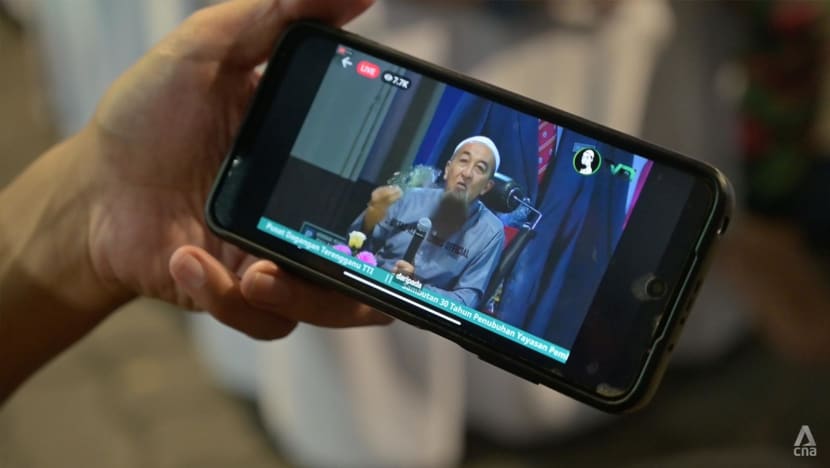
Ustaz Azhar also stressed he was not obsessed with growing his followers to form any political movement.
“We are not vain (or) desperate for more subscribers. In all my life I have never asked my viewers to please click on the (notifications) bell or subscribe to my channel. If you don’t watch my videos, it’s fine. But if you do, thank you.”
Ustaz Azhar made national headlines in 2023 when he became embroiled in a spat with Malaysia Prime Minister Anwar Ibrahim over an interpretation of a Quranic chapter.
During one of his lectures, Ustaz Azhar was asked about Mr Anwar’s comments that “the people of the cave” - a group cited in a Quranic chapter - were Christians and not Muslims.
Ustaz Azhar said then: “This is what ignorant leaders who are keen to show off look like … He does not have religious knowledge. When he speaks without religious knowledge, the leader has gone astray and is leading his people astray.”
In response, Mr Anwar said that “the preacher from Terengganu” - a reference to Ustaz Azhar - had taken his interpretation of the Quranic chapter out of context.
“As a preacher, we cannot be hasty and keen to play up political sentiments. This is the problem - if he wants to discuss the issue from a religious standpoint, he should have checked the facts first,” Mr Anwar told reporters.
SPREADING KNOWLEDGE THROUGH HUMOUR
One of Ustaz Azhar’s fans is Mdm Aisya Johari, a businesswoman from Ipoh who has been living in Kuala Terengganu for three months because she wanted to “increase her Islamic knowledge” by following the preacher on his lecture circuit.
The mother of a two-year-old daughter, Mdm Aisya said the sacrifice is worth it because she gets to learn from “one of the most knowledgeable preachers in the country”.
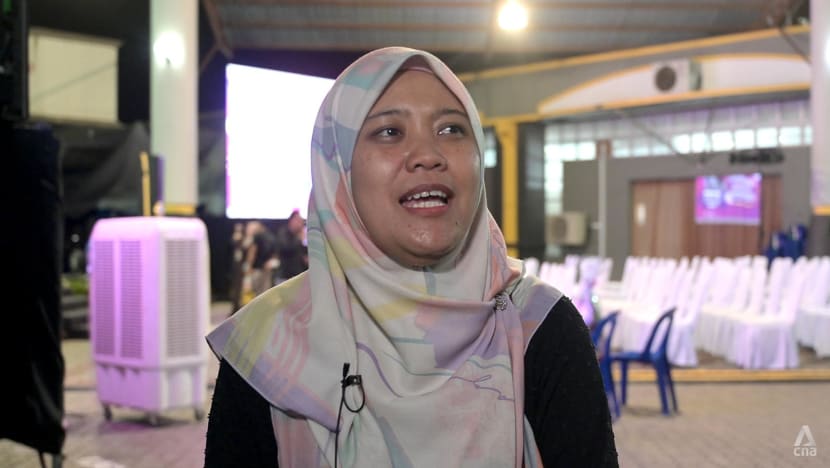
Mdm Aisya, who is in her 30s, said: “Ustaz Azhar Idrus’ lectures are accessible to youths. I have been following him since I was younger; with him, it's so easy for youths to understand difficult concepts.
“Other clerics seem so serious, right? But Ustaz Azhar Idrus conveys knowledge to young people in a simple way, mixed with some jokes but the message is clear and impactful,” she added.
Ustaz Azhar said he injects humour into his lectures to sustain followers’ attention so that the knowledge he shares gets through to them.
“Because my lectures are long - the shortest are an hour - and studies show that if the human body sits still for 40 minutes, they will feel tired and sleepy, and not be able to remember the points I’m saying,” he added.
Mdm Aisya acknowledged that her world view as well as thoughts on Malaysia's political situation are shaped by what she learns from preachers like Ustaz Azhar.
“During his lecture, Ustaz Azhar has said himself that the state of this country is neither here nor there,” said Mdm Aisya.
“He brought up (the possibility of) LGBT (lesbian, gay, bisexual, and transgender) concerts being held in Ramadan (if permitted by the current government). What should our opinion be if our leaders allow LGBT concerts to be held in the holy month?” she asked.
INDONESIAN PREACHERS LEVERAGING POWER OF SOCIAL MEDIA
The recent elections in Indonesia was a means for Ustaz Haikal Hassan to share with his followers his political leanings, though he told CNA he did not initially intend to use social media to preach about politics.
“Initially, my social media content was motivational, and then I expanded to preaching,” he said, adding that he had “no choice” but to be politically involved especially during last month’s presidential and legislative elections.
Ustaz Haikal used the opportunity to show his support for current Defence Minister Prabowo Subianto, who won the presidential election on his third try.
Ustaz Haikal became more politically vocal on social media during the Jakarta gubernatorial election in 2017 when society was polarised between two candidates: Former education minister Anies Baswedan, a Muslim of Arab descent, and incumbent Basuki Tjahaja Purnama, a Christian of Chinese descent.
“At that time, I felt a calling to support Mr Anies Baswedan as governor rather than Mr Basuki.
“(And) in 2019, I continued (preaching during the presidential election) and said Mr Prabowo is the right person to lead (Indonesia),” Ustaz Haikal said. That year, Mr Prabowo lost to incumbent President Joko Widodo.
Identity politics marred the 2019 presidential and legislative elections and Jakarta’s 2017 gubernatorial elections, observers have previously noted.
Now that Mr Prabowo is set to become Indonesia’s next president, Ustaz Haikal said he would criticise the incoming president if he did “something bad” which does not align with Islamic teachings.
“I love him, so I will criticise him. What is good must be held on to and the bad must be criticised,” he said.
Acknowledging the influence he wields, Ustaz Haikal said social media has allowed him to reach out to people he would otherwise not be able to.
“If I preach at a mosque, there will be around 500 people. But on social media, we can reach out to millions of people,” he said.
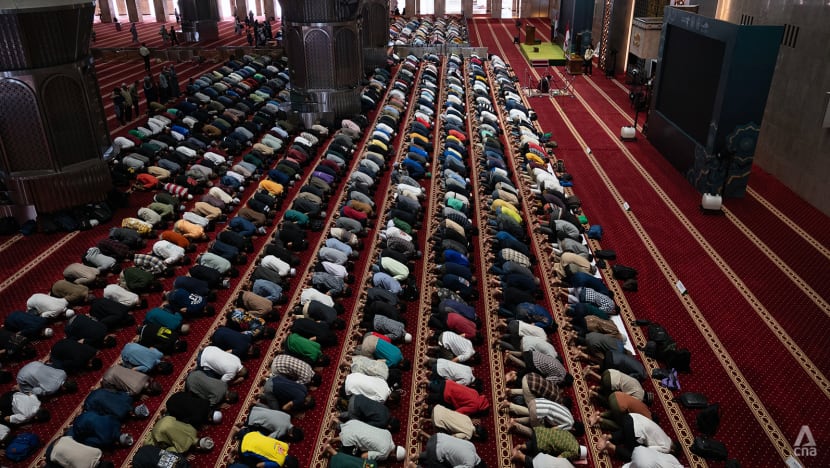
Another Jakarta-based preacher, Ustaz Bachtiar Nasir, was also not shy about expressing support for his preferred presidential candidate to his followers. On Instagram alone, he boasts some 1.1 million followers.
Ustaz Bachtiar supported Mr Anies - the former Jakarta governor - whose political content he believes contains messages about morality which align with Islamic values.
He also believes a leader must have traits such as a sense of fairness and justice.
“I voted for pair number one (Mr Anies and his running mate Muhaimin Iskandar).
“And this (support for Mr Anies) has been (present) since the time of the Jakarta gubernatorial election,” Ustaz Bachtiar said.
He added that his sharing of political content on social media was in response to his followers’ requests and questions regarding moral values.
But not all preachers with a healthy social media following are interested in pushing into the political sphere.
Yogyakarta-based preacher Ammi Nur Baits, who started using social media actively to preach during the COVID-19 pandemic in 2020, said he does not use social media to lecture about politics and instead focuses on Islamic teachings.
“Personally, I’m not too interested in politics. I think (being politically involved) is not my stance, and some people are fed up with politics and even try to avoid talking about it.
“I have no interest in being involved politically, so I don’t use my social media accounts to preach about politics,” he said.
There are also many preachers who continue to spread the teachings of Islam the traditional way - through Islamic boarding schools called pesantren - across Indonesia’s vast archipelago of over 17,000 islands, said political analyst Adi Prayitno from Universitas Islam Negeri Syarif Hidayatullah.
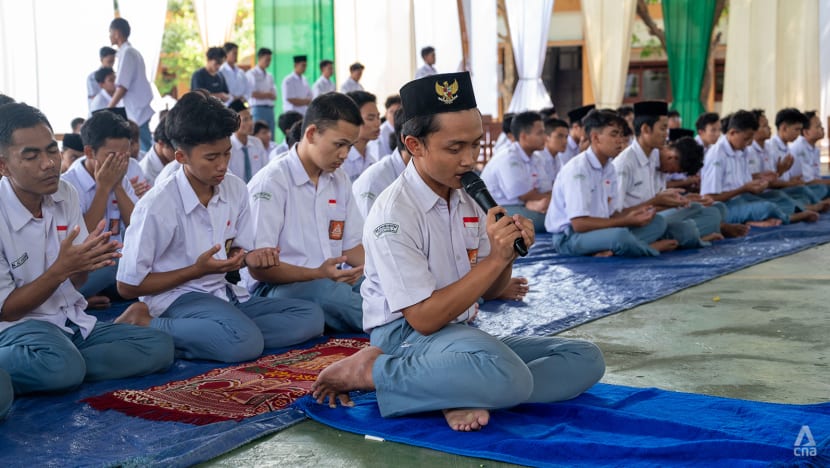
There are over 39,000 Islamic boarding schools in the country, according to 2023 data from the ministry of religious affairs.
Mr Adi noted that preachers who use social media tend to be those living in big cities in Indonesia as well as those who have studied abroad.
“Why? Because they view the outside world and globalisation not as threats," he said.
“But it is an opportunity to change the perception of Islam, that it is not exclusive … Islam is compatible with democracy and globalisation."
HOW IMPACTFUL IS THE POLITICAL MESSAGING?
Analyst Ujang Komarudin from Al Azhar University in Jakarta said preachers on social media tend to target everyone active on social media with their teachings and political messaging.
But because these preachers are not usually part of a political party, their messaging may not have much impact on their followers, he felt.
“Because they are not related to political parties, their affiliation is not visible."
“Even if they personally support candidate number one, two or three (in a presidential election) they are not (seen as) supporters in terms of the political party,” Mr Ujang said.
But for one Jakarta-based health worker - who wanted to be identified as Ahmad - seeing some of the preachers he follows on social media talk about politics did influence his stance in the recent elections.
“I became more convinced that my choice of presidential and vice-presidential candidates would bring goodness to all,” he said without revealing who he voted for.
“Those who understand religion support that pair. So why should I, whose understanding of religion is far from comprehensive, not support them?” said the 28-year-old.
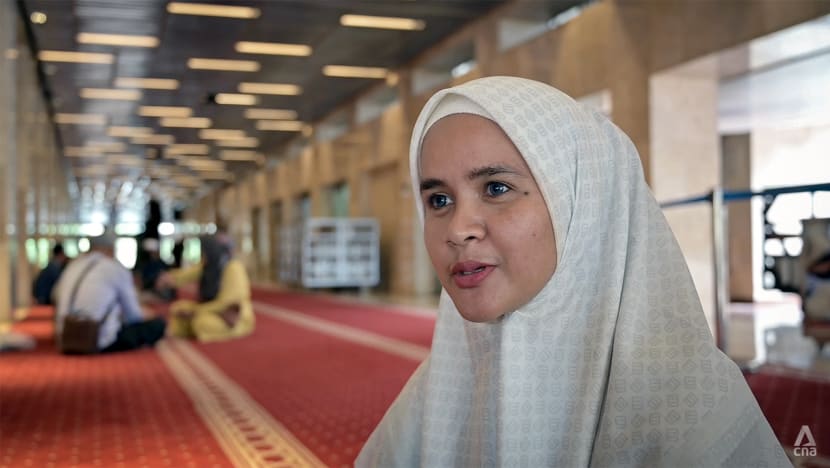
Ms Dila Fitria, on the other hand, said she uses the content of preachers she follows to obtain additional information on Islam. But she cautioned that she does not view it “as a main tool for understanding Islam, let alone political Islam”.
“I don’t try to find out about Islam on social media. Because I’m Muslim from birth, of course, I was taught about Islam from a young age. Social media is just for gaining additional information,” said Ms Dila, 29.
Bekasi-based student Davin Indra, who follows the social media accounts of some Islamic preachers, said he found it useful to find them online.
“Mainly because we youths are more in tune with our gadgets than attending Islamic lectures,” said the 18-year-old.
Political Islam expert Norshahril Saat, senior fellow at ISEAS-Yusof Ishak Institute said although the lack of a filter on religious content that youths consume on social media is a concern, it allows them to choose from a spectrum of preachers - conservative, progressive or liberal.
“One criticism is that we value the charisma of influencers rather than intellectual discourse, the content of the religious teachings itself,” said Dr Norshahril.
“In this era, official religious institutions (like the office of the Mufti) no longer have a monopoly on Islamic discourse … In this day and age social media is an important tool," he added. "If (the content) crosses certain boundaries such as promoting radicalism I think the (respective governments) will definitely act on it.”








